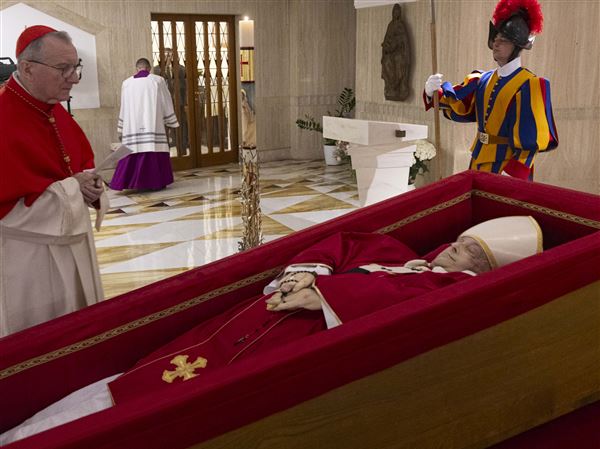Penn State University moved Friday to end another costly episode triggered by the Jerry Sandusky child sex assault scandal, announcing it will pay a record $2.4 million fine for violating federal campus crime reporting rules.
Penn State president Eric Barron conveyed the decision in a four-paragraph message posted to the school’s website with the university away for Thanksgiving break. It was the last day the flagship public university had to decide whether to accept or fight the largest penalty ever assessed by the U.S. Department of Education in a federal Clery Act investigation. Even after the announcement, there appeared to be discord among some board members about whether the university was too quick to acquiesce.
Asked how Penn State will pay, spokeswoman Lisa Powers said general funds will be used and “there will be no direct impact on tuition rates.”
The investigation was sparked by discovery in 2011 of on-campus sex offenses by Penn States’s now-imprisoned former assistant football coach Jerry Sandusky, though as it turns out, only a small amount of the Clery fine — $27,500 — involved lapses tied to the Sandusky case.
The overwhelming majority — $2,167,500 — was for “failure to properly classify reported incidents and disclose crime statistics from 2008-2011,” according to the agency.
The investigation focused on the years 1998 through 2011, coinciding with the allegations involving Sandusky through his arrest.
Mr. Barron said Penn State appreciated having a chance to address portions of the department’s final determination with which the university disagreed. Despite those disagreements in the 239-page report, “We have accepted the fines and will continue to focus on our ongoing Clery compliance. It is Penn State’s goal to not only meet the standards articulated by the (department), as we believe we currently do, but to set a new standard for Clery compliance in higher education.”
Mr. Barron said “a robust program” for compliance now exists through new positions, mandatory training and other initiatives, including an online anonymous reporting system for sexual misconduct.
One trustee, Anthony Lubrano, said Friday he’s not so sure the fine will not affect tuition. “It’s nice to say it’s coming out of some non-tuition fund, but at the end of the day money is fungible,” he said. “The fact is you now no longer have $2.4 million available to source some educational need.”
Mr. Lubrano said he and some other alumni trustees were unhappy with the decision to pay rather than appeal, for reasons including what he said was the apparent influence of the university-commissioned Freeh report on the Clery investigation.
That report, prepared by the firm of former FBI director Louis Freeh, said Penn State officials sought to shield Sandusky and his crimes, but the report has faced a backlash of criticism.
Mr. Lubrano said alumni trustee William Oldsey this week wrote a letter to the board’s leadership expressing those concerns, to no avail. Instead, said Mr. Lubrano, the university agreed to pay with the blessing of trustee representatives but no full-board airing.
“Why not appeal?” Mr. Lubrano said. “What have you got to lose?”
Mr. Oldsey could not be reached for comment Friday.
On Nov. 3, the Education Department announced its intent to fine Penn State $2.4 million for failing to adhere to the Jeanne Clery Disclosure of Campus Security Policy and Campus Crime Statistics Act. In all, the department made 11 serious findings of noncompliance for failing to report or to adequately classify crimes, including record-keeping and training failures
Sandusky, convicted in 2012, is now in prison.
The Clery Act of 1990 requires colleges and universities to inform the public and department annually of campus crimes. It also requires them to provide — when appropriate — “a timely warning if a reported crime represents a threat to the campus community,” the agency said.
The campuses also must have crime and security policies and disclose them to students and employees. Previously, the largest Clery fine was $357,500 in 2007 against Eastern Michigan University and settled for $350,000.
Bill Schackner: bschackner@post-gazette.com, 412-263-1977 and on Twitter: @BschacknerPG.
First Published: November 25, 2016, 6:24 p.m.
Updated: November 26, 2016, 3:37 a.m.


















